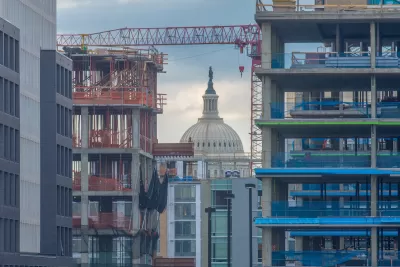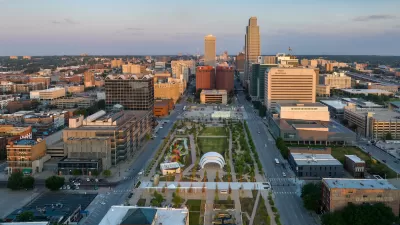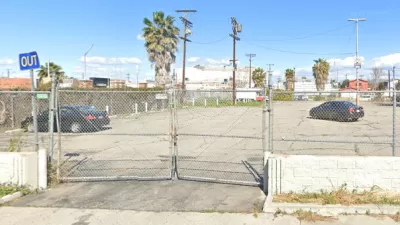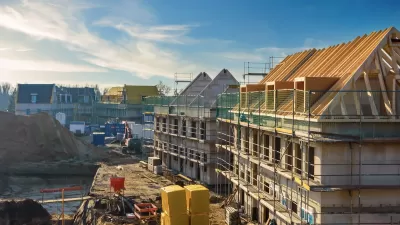The city auctioned off 58 lots at low prices to stimulate housing development. Half are still vacant.

Roughly two dozen properties auctioned off under Washington, D.C.’s Vacant to Vibrant program are still vacant, report Justin Wm. Moyer and Danny Nguyen in The Washington Post. “The program aimed to ‘produce and preserve affordable housing and create homeownership opportunities,’ according to promotional materials.”
According to the article, the city sold 56 sites in 2018 and 2019 in an effort to support the development of workforce housing. “Half of the 56 properties are inhabited and no longer owned by the city. The rest remain undeveloped, uninhabited or badly in need of repair. More than half of those vacant properties have returned to District ownership. In some cases, those who won auctions never took possession.”
“Joseph Schilling, who studies housing policy at the Urban Institute, said the program’s checks and balances are ‘consistent with how other cities have tried to tackle vacant properties,’ but the 1½-year deadline given to most of the developers was probably too short.” Developers are not required to provide proof of financing for a project beyond the purchase price, and the city has not penalized developers who have not fulfilled their agreements.
In contrast, a similar program in Baltimore has yielded more successful results. According to former Baltimore Housing Commissioner Michael Braverman, this was “because it identified developers who had a history of building affordable housing and partnered them with affordable housing nonprofits and community members. The program also helped developers secure financing and relaxed zoning requirements.” Baltimore also strictly enforced a system of fines for developers who failed to meet their deadlines.
FULL STORY: D.C. sold properties for affordable housing. Half are still vacant.

Montreal Mall to Become 6,000 Housing Units
Place Versailles will be transformed into a mixed-use complex over the next 25 years.

Planetizen Federal Action Tracker
A weekly monitor of how Trump’s orders and actions are impacting planners and planning in America.

Four Reasons Urban Planners Can’t Ignore AI
It’s no longer a question of whether AI will shape planning, but how. That how is up to us.

Bend, Deschutes County Move to Restrict Major Homeless Encampment
City and county officials are closing off portions of an area known as Juniper Ridge where many unhoused residents find shelter, hoping to direct people to housing and supportive services.

High Housing Costs Driving Down Transit Ridership in LA
When neighborhoods gentrify and displace lower-income residents, transit ridership suffers, new research shows.

Iowa Legalizes Accessory Dwelling Units
A new law will allow property owners to build ADUs on single-family lots starting on July 1.
Urban Design for Planners 1: Software Tools
This six-course series explores essential urban design concepts using open source software and equips planners with the tools they need to participate fully in the urban design process.
Planning for Universal Design
Learn the tools for implementing Universal Design in planning regulations.
City of Mt Shasta
City of Camden Redevelopment Agency
City of Astoria
Transportation Research & Education Center (TREC) at Portland State University
City of Camden Redevelopment Agency
Municipality of Princeton (NJ)
Regional Transportation Commission of Southern Nevada





























